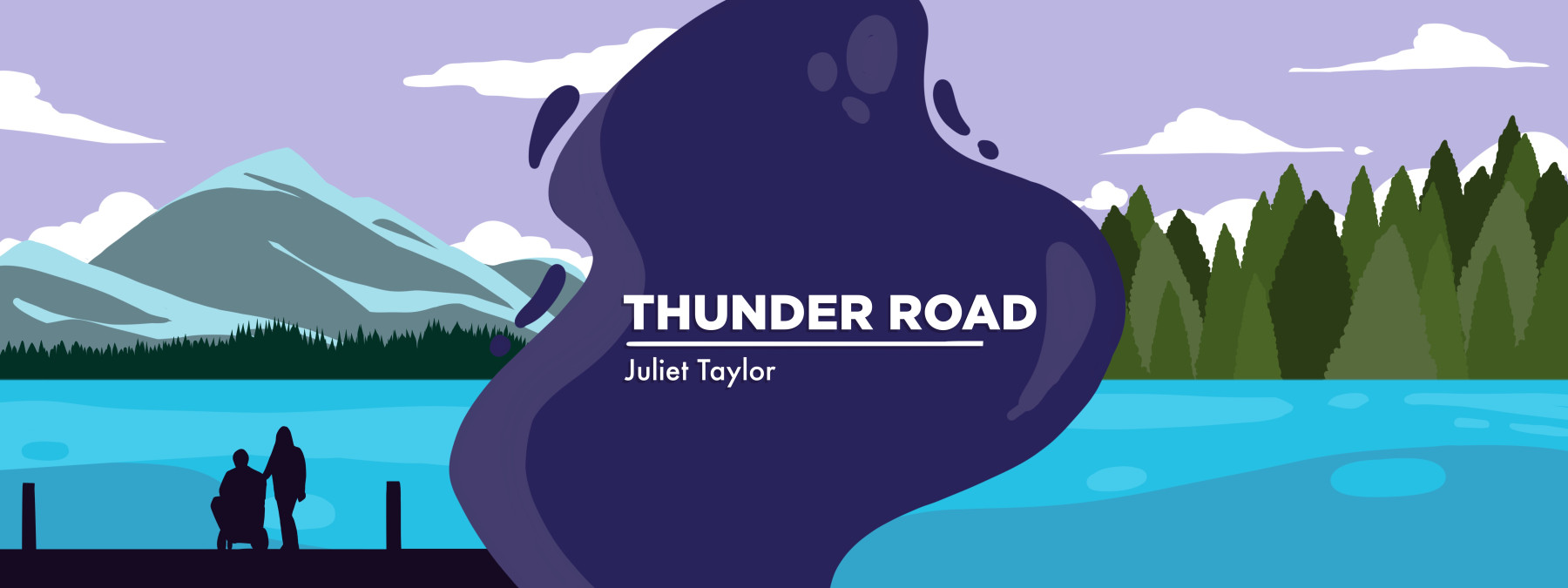What does strength really mean in life with ALS?
Strength can mean both more and less than we think
Written by |

When I met my late husband, Jeff, we lived exactly 7 miles apart by car, our respective homes separated by the Potomac River just south of Washington, D.C. The bridge that crossed it nearest to our places featured a wide and safe bike lane that separated cyclists and pedestrians from vehicular traffic.
Jeff and I both had a passion for riding — Jeff on bicycles, me on horses. On some days, Jeff would bike across the bridge to my condo for a visit. Other days, we might unexpectedly meet on the bridge, our paths crossing while I walked my dog, Rudder.
Even from our first date, it was clear to me that biking and being an athlete were part of Jeff’s identity. While he’d been severely injured after being hit by a car on a training ride in 2010, he still enjoyed biking, although more conservatively, and no longer competitively.
A few months before his ALS diagnosis in the fall of 2018, Rudder and I walked while Jeff made, alongside us, what was unknowingly his last bike ride. He’d been complaining of foot drop, a common symptom that can lead to suspicion of ALS, though we hadn’t known that at the time. He simply had trouble keeping his right foot on the pedal and was frustrated.
It’s not that he decided that day to stop riding. Rather, in the weeks that followed, his symptoms accelerated and we focused more urgency on finding out what they meant. And once we did, our priorities shifted instantly and permanently away from physical pursuits as we used to know them. Bikes, horse shows, going to the gym — all fell away as we struggled with his new diagnosis. Because his progression was relatively fast — Jeff died just 19 months later — we weren’t able to reintegrate those passions into our lives.
Practically overnight, we shifted to focus less on challenging, empowering, and building our physical bodies and more on sustaining and preserving them. For Jeff, it was to keep him alive for as long as possible with ALS; for me, it was to find the physical reserve to lift, position, and attend to him around the clock as his caregiver.
ALS is often described in terms of strength and weakness. But I learned through our life with ALS that my concept of strength — for Jeff, me, and others — was far more expansive than I’d originally thought. Physicality is an element of strength, for sure, but far more important and frankly more challenging are the emotional elements, particularly in difficult times.
I discovered, in both Jeff living with ALS and me caring for him, that physical strength has only so much utility. The strengths we really needed, and unconsciously cultivated, included perspective, teamwork, forbearance, and healthy doses of compassion for each other.
Our strengths also had to complement each other’s. My inability to lift Jeff if he fell was far less consequential than my ability to remain calm and reassuring while calling 911. Similarly, Jeff’s inability to race his bike had no impact on the strength and zeal with which he embraced life when given a terminal diagnosis.
Lessons on strength and weakness
I’m thinking a lot about strength and weakness while spending this week at the Paralympic Games in Paris, watching a family friend compete in para equestrian. This morning’s competition, from which I’ve just returned, reminded me of some of the subtle and permanent lessons that I learned with, and from, Jeff.
I watched today as athletes of various ages and abilities navigated 1,400-pound horses through complex movements using only the slightest of touches. I watched them problem-solve in real time with patience, softness, and adaptation. I watched horse-and-rider partnerships exude strengths that, in many moments, had far more to do with the mind than the body.
I’m reminded again, as I was with ALS, that beyond a conventionally strong body, there are so many other pathways to strength. Emotional fortitude, the passion to continuously challenge and evolve, and the desire to keep going in adverse conditions can sometimes serve us better than the ability to walk unaided.
This doesn’t necessarily mean we wouldn’t want certain physical abilities back. Jeff surely did, and I know he missed his athleticism when ALS took it away. But in the end, what made him strong was never his body, but his mind and attitude. That’s what saw both of us through the happiest of our early days as well as the hardest parts of our journey, and it’s yet another gift he left me.
Note: ALS News Today is strictly a news and information website about the disease. It does not provide medical advice, diagnosis, or treatment. This content is not intended to be a substitute for professional medical advice, diagnosis, or treatment. Always seek the advice of your physician or other qualified health provider with any questions you may have regarding a medical condition. Never disregard professional medical advice or delay in seeking it because of something you have read on this website. The opinions expressed in this column are not those of ALS News Today or its parent company, Bionews, and are intended to spark discussion about issues pertaining to ALS.







Leave a comment
Fill in the required fields to post. Your email address will not be published.